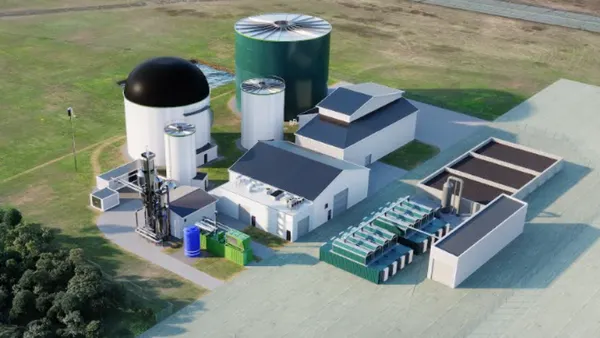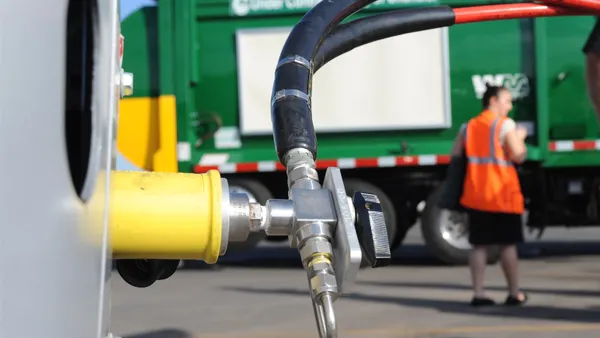Dive Brief:
- Covanta's Dublin Waste-to-Energy facility was fined 1,000 euros ($1237.78) and ordered to pay 14,000 euros ($17,328.92) in court fees after pleading guilty to three charges of breaking the conditions of the facility's license with Ireland's Environmental Protection Agency (EPA), as reported by The Irish Times.
- The company pleaded guilty to failing to operate the plant so that gas resulting from the conversion process was at least 850 degrees Celsius; failing to ensure a secondary burner was switched on automatically when the temperature fell below 850 degrees; and failing to notify the EPA of an incident at the facility earlier in June in a timely fashion. Three other charges were dropped and two of the guilty charges were struck.
- A representative for Dublin Waste-to-Energy told the court that the failures were caused by a "glitch" that occurred when the facility was in its earliest days of operation. The representative also said there was no evidence of environmental damage from the incident.
Dive Insight:
Judge Flann Brennan said major factors in his somewhat-lenient ruling were that Dublin Waste-to-Energy was cooperating, had entered a guilty plea and had no prior convictions. Each offense carried a potential charge of up to 4,000 euros, a far greater amount than the 1,000 euro total charge, likely welcome news for Covanta and Dublin City Council.
The facility has been operating at capacity since December 2017, processing 1,644 metric tons of solid waste per day and generating up to 61 megawatts of electricity. This came after a June incident that sent 11 workers to the hospital and disrupted progress on getting the plant operational.The Dublin project is significant for Covanta, which is largely focusing on new development in Europe instead of new facilities in the U.S. It is also worth noting that the Dublin facility is Covanta's newest.
In the United Kingdom, Covanta is constructing a WTE facility about 60 miles north of London. Once completed, that facility is estimated to have a yearly capacity of over 500,000 metric tons; the company expects it to be fully operational by 2021.
Domestically, the company is focusing on beefing up its profiled waste business, looking at the value of recovered metals and looking at locking in contracts to continue operating existing facilities. While the fine in Ireland is notable given its past, high-profile service interruptions, it ultimately is unlikely to impact operations, as Covanta brought in over $1.75 billion in 2017.









